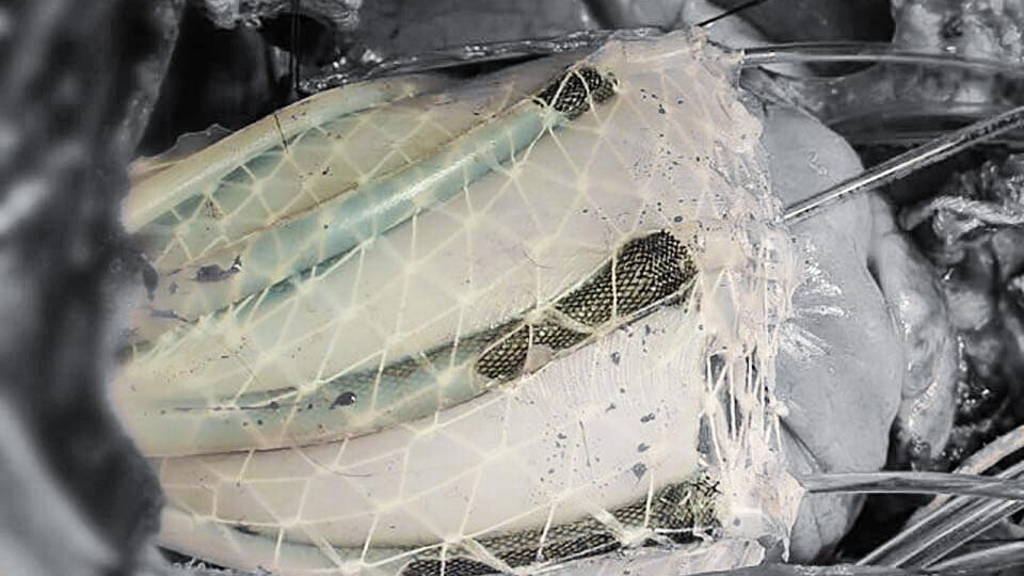Improving cardiac function
The development of heart compression was benched due to technological limitations. New technological advancements, however, now make it possible to revisit the idea. The soft robotic sleeve has material properties similar to native heart tissue. It also twists and compresses in sync with a beating heart, strengthening cardiovascular functions weakened by heart failure. The sleeve demonstrates that it can safely interact with soft tissue and lead to improvements in cardiac function.Another positive characteristic of this sleeve is the fact that it does not contact blood and thus reduces the risk of clotting. This means there is no need for potentially dangerous blood thinner medication, which is often the case with VADs.
The heart as inspiration
The thin silicone sleeve — which can be customized to better support individual patients — uses soft pneumatic actuators placed around the heart to mimic the outer muscle layers of the heart. These actuators twist and compress in sync with the actual heart. An external pump, connected to the sleeve, uses air to power these actuators. The pressure of the actuators can be increased or decreased, to best suit the patient’s condition. To make sure the sleeve actually stays in place, the researchers have used a combination of a suction device, sutures and a gel interface, which reduces friction between the device and the heart.Harvard’s Office of Technology Development has filed a patent application. However, more research needs to be done before the sleeve can be implanted in humans. The sleeve is an important first step towards an implantable soft robot that can augment organ function, and maybe one day even heal heart failure. Harvard’s team hopes to help restore the quality of life of those suffering from heart failure.

